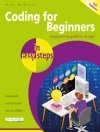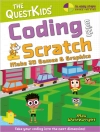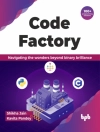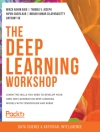The recent surge of interest in digital ecosystems is not only transforming the business landscape, but also poses several human and organizational challenges. Due to the pervasive effects of the transformation on firms and societies alike, both scholars and practitioners are interested in understanding the key mechanisms behind digital ecosystems, their emergence and evolution. In order to disentangle such factors, this book presents a collection of research papers focusing on the relationship between technologies (e.g. digital platforms, AI, infrastructure) and behaviours (e.g. digital learning, knowledge sharing, decision-making). Moreover, it provides critical insights into how digital ecosystems can shape value creation and benefit various stakeholders. The plurality of perspectives offered makes the book particularly relevant for users, companies, scientists and governments. The content is based on a selection of the best papers – original double-blind peer-reviewed contributions – presented at the annual conference of the Italian chapter of the AIS, which took place in Pavia, Italy in October 2018.
Mục lục
Introduction to Digital Ecosystem.- Human communities in digital ecosystems.- Rethinking Romanian and Italian smart cities as knowledge-based communities .- Are the Elderly Averse to Technology? .- Value Co-creation in Online Communities: a Preliminary Literature Analysis.- Disability and home automation: Insights and challenges within organizational settings.- Efforts towards openness and transparency of data: a focus on Open Science Platforms.- Millennials, Information Assessment, and Social Media: an Exploratory Study on the Assessment of Critical Thinking Habits.- Human resources and learning in digital ecosystems.- Grasping corporate identity from Social Media: Analysis of HR consulting companies.- Managing Intellectual Capital inside Online Communities of Practice: an Integrated Multi-Step Approach.- How do we learn today and how will we learn in the future? Digital-enhanced and personalized learning win.- Understanding the relationship between intellectual capital and organizational performance: the role of e-HRM and performance pay.- Information and Communication Technologies usage for professional purposes, work changes and job satisfaction. Some insights from Europe.- (Digital) learning models and organizational learning mechanisms: should organizations adopt a single learning model or a multiple one?.- Processes and IS design in digital ecosystems.- Meta Principles of Technology Accessibility Design for Users with Learning Disabilities: Towards Inclusion of the Differently Enabled.- Business process analysis and change management: the role of material resource planning and discrete-event simulations.- A Simulation-driven Approach to Decision Support in Process Reorganization: a Case Study in Healthcare.- How to Rate a Physician? – A Framework for Physician Ratings and What They Mean.- Last mile logistics in smart cities: an IT platform for vehicle sharing and routing.- Digital Transformation Projects Maturity and Managerial Competences: a Model and its Preliminary Assessment.- Reporting some marginal discourses to root a De-design approach in is development.- Patient-centered digital infrastructures: examining two strategies for recombinability.- Time Accounting System: measuring usability for validating the socio-technical fit of e-service exchange solutions in local communities.- Digital Identity: a Case Study of the Pro CIDA Project.- A Monte Carlo Method for the Diffusion of Information between Mobile Agents.- Organizing in digital ecosystems.- Understanding the use of Smart Working in Public Administration: the experience of the Presidency of the Council of Ministers.- Decisions and infrastructure (in)visibility: a case study.- Unlocking the value of Public Sector Personal Information through coproduction.- Social media communication strategies in fashion industry.- The Illusion of Routine as an Indicator for Job Automation with Artificial Intelligence. IS in the Cloud and Organizational Benefits: an Exploratory Study.- Organizational Change and Learning: an explorative bibliometric-based literature analysis.- Community-oriented motivations and knowledge sharing as drivers of success within Food Assemblies.
Giới thiệu về tác giả
Alessandra Lazazzara is an Assistant Professor of Organization and Human Resource Management at the University of Milan. She holds a Ph D in Organizational Development from the University of Milano – Bicocca and she has been visiting scholar at The Netherlands Interdisciplinary Demographic Institute (The Netherlands). Her research interests focus on job crafting, e-HRM, and diversity and inclusion. She is involved in several national and international research projects with a wide range of companies and institutions. Alessandra teaches at both undergraduate and graduate levels in the area of Organization Studies, Training & Development, and Organizational Behavior. She has authored several publications in national and international journals, co-edited two books of the Springer LNISO series and is editorial board member of The International Journal of Human Resource Management. Alessandra serves as vice president of It AIS, the Italian Chapter of the Association for Information Systemsand is a board member of ASSIOA, the Association of Italian Organization Studies Academics.
Francesca Ricciardi is an Associate Professor of Business Organization at the University of Turin, Italy, and a visiting lecturer of Organizations and Communities at the University of Lund, Sweden. Previously she served at the University of Verona, University of Genoa, and the Catholic University of the Sacred Heart, Brescia. She regularly teaches at several postgraduate and master programs. Her research interests span themes such as inter- and intra-organizational relationships, adaptive organizational learning, smart cities and communities, and the innovative management of the commons. She has published more than 60 studies on these subjects, including international journal articles, monographs, book chapters, and conference papers.
She is co-founder and scientific director of the Smart Commons Lab. Before completely dedicating herself to research and teaching, she worked as aconsultant, gaining experience in the fields of facility management, project management, and executive search.
Stefano Za is an Assistant Professor of Organization Studies and Information Systems at University ‘G. d’Annunzio’ of Chieti-Pescara (Italy), Adjunct Professor at LUISS University, Rome, and visiting professor at the EM Strasbourg Business School. He has been Secretary of the Italian Chapter of AIS (It AIS) since 2008, and member of program committees and reviewer for national and international conferences and journals in the domains of Information Systems and Organization Studies. His main research interest is the analysis and design of digital artefacts and organizational systems. He is currently focused on digital innovations and business transformation affecting people and organizations in the digital ecosystem. He was editor for several books and special issues of journals. He has also published a book and papers on international conferences, book series and journals.












